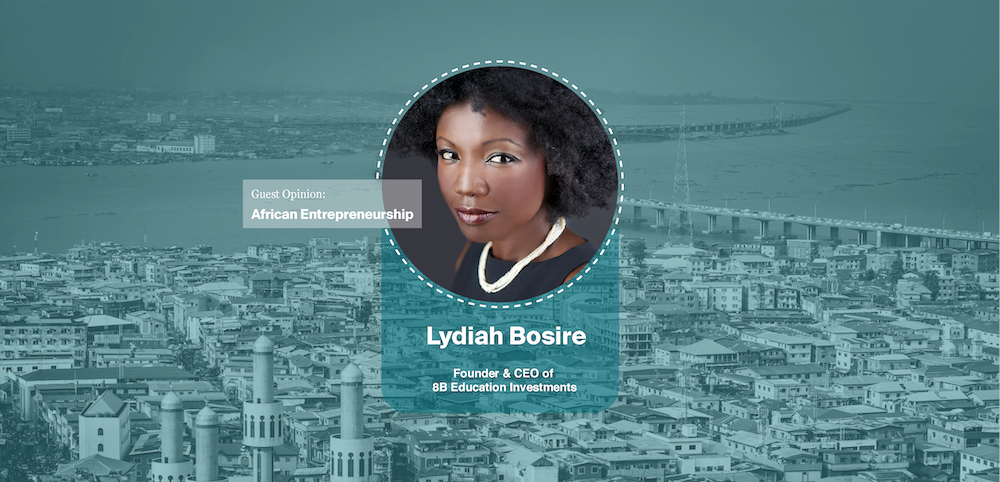- African entrepreneurs defy expectations during the pandemic, innovating while experts and assistance providers stay grounded in their home countries
This is an opinion piece; the views expressed are the author’s own. You can share your thoughts on this piece by sending them to Karma editors at hello@karmaimpact.com.
As the COVID-19 crisis unfolds around the globe, one concern frequently expressed is the potentially cataclysmic impact on African countries. Many have feared that the continent may not have the tools to cope, with technical assistance providers and other assorted experts grounded in their home countries.
African entrepreneurs, however, are telling a different story — one in which the stock of ventilators must not be confused with the capacity of the continent to innovate and respond.
In particular, the $1.27 billion in venture funding that went toward African companies last year seeded firms that are helping life continue somewhat as normal. While it is feared that funding may drop by as much as 40% this year, and while more can be done to ensure funded startups are more diverse, for now, innovations in financial, educational and healthcare technology are keeping African citizens connected to services in the midst of a global disruption.
The companies supporting everyday people through this pandemic will continue to shape the way business, education, and healthcare are practiced on the continent for years to come, and continue crafting that alternative narrative of African agency.
Fintech has kept economies going while everyone stays inside
African fintech firms have long attracted attention by bringing banking to tens of millions of people. Fintech innovators have catapulted Africa to the top of the list of regions with the most mobile money users. COVID-19’s economic effects have brought these innovations, including mobile money and digital banking, to the forefront of people’s lives.
Millions of Africans were able to continue banking and buying from their phones despite brick and mortar banks and shops being closed by the pandemic. In fact, Central Bank of Kenya coordinated with Safaricom and M-Pesa — global leaders in this area — to encourage Kenyans to use mobile payments and avoid cash transactions. E-commerce has also provided an outlet for SMEs that COVID-19 restrictions forced close.
This initiative impacted the health and safety of Kenyans who were able to transact as usual without potentially exposing themselves to the virus. Fintech’s ability to innovate and serve African users across the continent will only expand as new initiatives fill the continent’s internet service gaps.
Online learning has boosted the burgeoning African edtech space
This year will cap off a decade that saw $32 billion invested into edtech ventures globally. The surge in edtech usage as a result of COVID-19 related school closures has given the world a preview of the possible future of learning.
African innovators were already making waves in the edtech space before the pandemic, and now their work is of utter importance in a context where almost 300 million students will be learning from home. Mobile learning app usage has skyrocketed in North Africa, for example, where governments have encouraged teachers to embrace distance learning platforms.
Edtech companies are expanding to meet growing demand in established markets like South Africa. Syafunda, for example, recently secured a new round of funding to create more “virtual libraries” in rural communities.
The future of education may be digital, and Africa’s innovators have positioned the continent to take advantage of this transition, even as profound challenges remain that have to do with access to computer hardware, data, and power.
COVID has shown a path forward for Africa’s healthcare technology sector
Telemedicine and other health tech innovations have the potential to bring healthcare to underserved rural communities throughout Africa. South Africa has been a leader in telemedicine technology from apps that provide pregnant women with maternal health services, to technology that can rapidly diagnose common diseases.
Now more than ever, telemedicine is serving a crucial role by connecting doctors and patients while reducing the risk of Covid-19 transmission and decreasing the burden on hospital systems. African innovators like Helium Health, which collects crucial data to enable telemedicine systems in Nigeria, Liberia, and Ghana, are at the forefront of health tech innovations that will strengthen Africa’s medical systems for years to come.
While the pandemic and its effects continue to unfold, and a spotlight is placed on what an inclusive innovation ecosystem on the continent might look like, the continent’s innovators are proving resilient, and continuing to provide solutions that help millions. And while African economies, societies, and governments may look different after COVID-19 subsides, innovative companies will continue to drive the region forward in the finance, education, healthcare sectors, and beyond.
Lydiah Bosire is the founder of 8B Education Investments. She has no investments in the companies mentioned. Previously she worked at the U.N. and the World Bank, on issues including peace and security, global health, transitional justice and development finance. She holds a DPhil from the University of Oxford. Follow her at @DrLydiahKBosire.






















